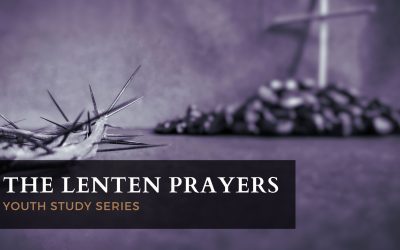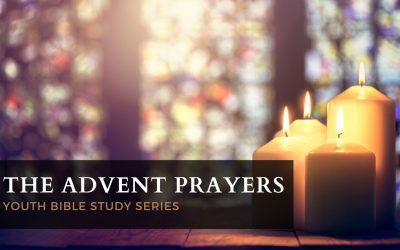If we’re honest, we all have things that we hold on to that keep us from living life to the fullest. That’s one of the reasons why we give things up during the season of Lent, because we recognize the needs to let go of some things so that we can grow closer to God. And that’s why this season is a perfect time for us to take a deeper look at some things we need to drop.
Our 3-week youth bible study called Drop It! is all about identifying three things we need to drop (our past, our plans, our rights) in order to live fuller lives in Christ. During this time, we’re doing three key character studies to help us better understand what it looks like to drop these things.
The goal is that we not only recognize what we need to drop in our lives, but also to discover the benefits of living a life fully devoted to Christ.
Week 1: Drop Your Past
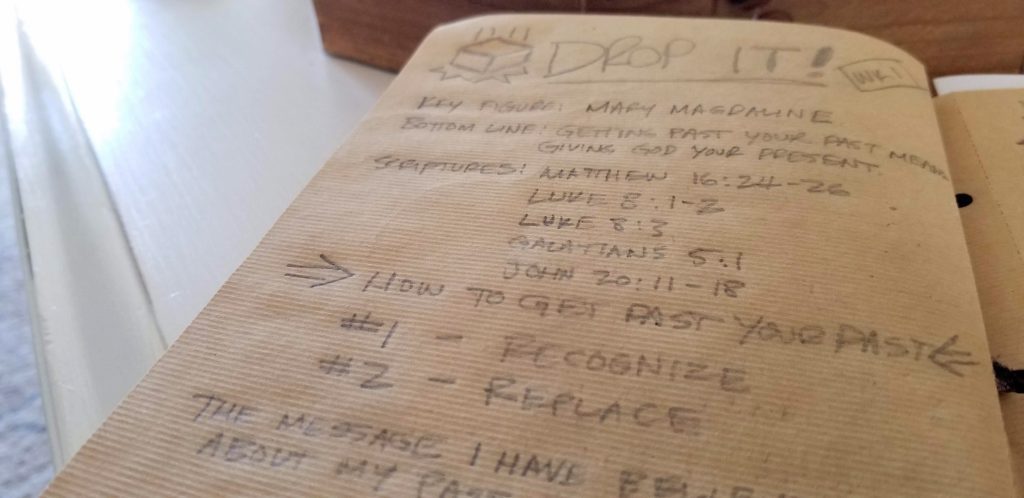
Mary Magdalene was an extremely troubled woman. The Scriptures say that she was possessed by SEVEN demons. And whether that’s actual demon possession or mental illness (as would have likely been described during that time), the number indicates that it was an extreme case. So even when Jesus delivered her from that, it would have been vary easy for her to live in her past rather than step boldly into her future. This week explored what that transition looked like for Mary, and what we can learn about letting go of things in our own past.
Key Figure: Mary Magdalene
Bottom Line: Getting past your past means giving God your present.
Scriptures:
How to get past your past:
- Recognize
- Replace
The message I have believed about my past is _______.
My next step is _______.
Week 2: Drop Your Plans
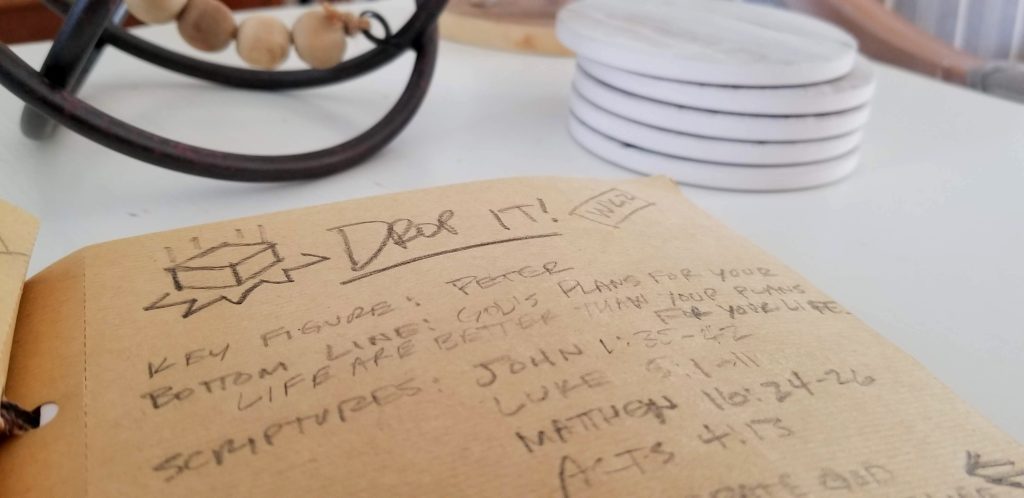
Peter was just a rough around the edges fisherman who really had no plans other than serving himself. That is until Jesus came along and changed his life (the huge haul of fish would have set him up financially for quite some time) and invited him into a life bigger and more full of purpose than he could have imagined (being a fisher of men). But Peter had to make the shift from a life of self-service to a life in the service of Christ. He had no idea where this would lead him. But in the end, this uneducated, dirty fisherman would become a key element in a movement that would change all of history.
Key Figure: Peter
Bottom Line: God’s plans for your life are better than your plans for your life.
Scriptures:
3 ways to integrate God into every area of your life:
- In making every day decisions.
- In making a big decision.
- Following Jesus into the unknown.
Week 3: Drop Your Rights
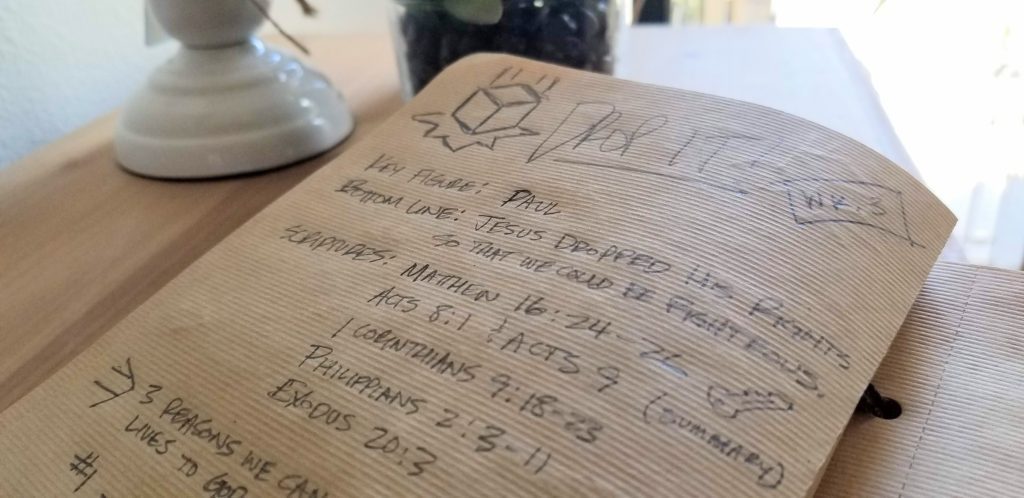
If anyone in the early first century had the right to a life of high position and honor, it was Saul (eventually, Paul). As a Roman citizen, he would have been in a more favorable position in life according to the government rule. And as a highly-educated Jew, he would have also lived a prosperous life among the religious society he belonged to. But once he encountered Jesus, he gave it all up. In fact, he considered it all rubbish/dung compared to living a life for Christ. Paul would go on to be one of the most influential people in the early Christian Church, but it all starts with giving up his rights for something far better.
Key Figure: Paul
Bottom Line: Jesus dropped His rights so that we could be righteous.
Scriptures:
3 reasons we can entrust our lives to God without fear:
- Jesus won’t ask you to do something he hasn’t done Himself.
- Laying down your rights turns your focus from yourself to others.
- Putting things in God’s place will leave you displaced.
Final Thoughts on the Drop It! Bible Study
Our youth group has been digging deep with this study. The character studies have brought a great deal of richness to our conversations, because they have been able to connect the characters to their own lives. This has been an important element in helping to make the Bible come alive for them as we continue to read and study the Word.
My prayer is that we all continue to look at the lives of these three people and find inspiration and direction for how we can live our own lives. As we each let go of our past, our plans, and our rights, I pray that we also find greater purpose and a fuller life in walking with Christ.
When you talk with the St. Edward’s youth, I encourage you to ask them which of the characters (Mary Magdalene, Peter, or Paul) they connected with the most during our study, and why. And then encourage them as the start to identify things in their lives they need to drop as they begin to live more fully for Christ.


